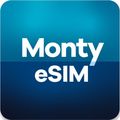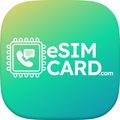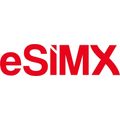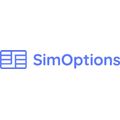Avec l'application Monty eSIM, les utilisateurs peuvent accéder aux forfaits eSIM des opérateurs du monde entier sans avoir à acheter des forfaits locaux ou des cartes SIM physiques. Nos offres permettent aux clients de passer au forfait d'un opérateur local tout en conservant leur ligne existante, en téléchargeant simplement l'application, en s'abonnant et en voyageant.

Avec l'application Monty eSIM, les utilisateurs peuvent accéder aux forfaits eSIM des opérateurs du monde entier sans avoir à acheter des forfaits locaux ou des cartes SIM physiques. Nos offres permettent aux clients de passer au forfait d'un opérateur local tout en conservant leur ligne existante, en téléchargeant simplement l'application, en s'abonnant et en voyageant.
Forfaits de données eSIM Monty eSIM pour l'Oman
Questions fréquemment posées
Monty eSIM propose-t-il une eSIM à données illimitées pour Oman?
Monty eSIM ne fournit pas d’eSIM à données illimitées pour Oman.
Les voyageurs peuvent choisir parmi une gamme de forfaits de données fixes.
Par exemple, un forfait de 20 GB est disponible pendant 30 jours à 23, 50 USD et un forfait de 10 GB est proposé pendant 30 jours à 13, 99 USD.
Pour la plupart des utilisateurs, une option à données fixes est plus rentable, sauf si un usage très lourd des données est prévu.
Monty eSIM propose-t-il une eSIM Oman avec numéro de téléphone et SMS ?
Monty eSIM ne propose pas de plans eSIM Oman incluant un numéro de téléphone local ou la capacité SMS. Les voyageurs ne peuvent acheter que des options données uniquement pour le pays. Les applications de communication OTT telles que WhatsApp, Telegram et iMessage peuvent être utilisées via la connexion de données pour les appels et les messages, éliminant ainsi la nécessité d’un numéro de téléphone traditionnel ou d’un service SMS.
Combien de forfaits de données Monty eSIM propose-t-il pour Oman ?
Monty eSIM propose 11 forfaits mono‑pays qui couvrent Oman et 11 forfaits multi‑pays supplémentaires qui incluent Oman. Les prix varient d’environ 2, 99 $ à près de 66, 50 $, tandis que les allocations de données oscillent entre 1 GB et 20 GB. La plupart des forfaits sont des bundles à quantité fixe ; certains peuvent également comporter des plafonds journaliers de données dans le cadre de l’allocation globale.
Résumé avec Gen AI. Dernière mise à jour:




